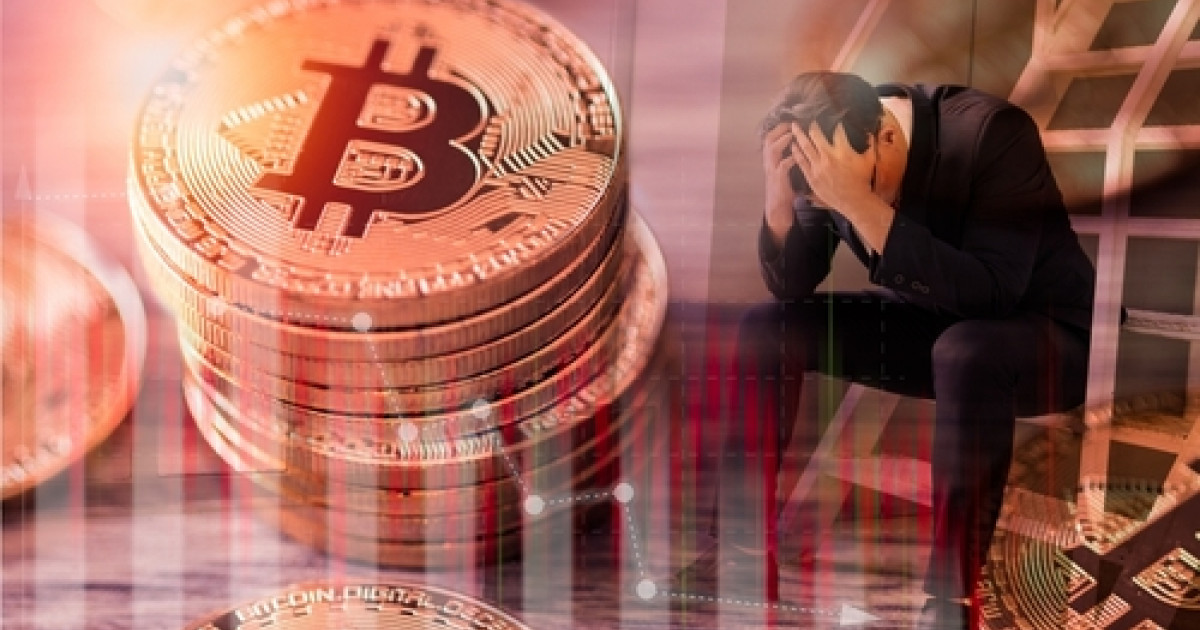Bitcoin had big intentions. The promoters saw the cryptocurrency as one of the world’s safe assets, along with gold and the franc, to which investors turn in troubled times. But the turmoil in the financial markets earlier this week caused painful movements in the price of Bitcoin and destroyed the arguments of those who argued that the virtual currency can be a refuge in times of economic uncertainty .
Fears of a recession in the United States and rising interest rates in Japan sent shock waves through stock, currency and bond markets. The Dow Jones fell more than 1,000 points, or 2.6 percent, on Monday, while the Nikkei had its worst day since 1987, down more than 12 percent.
But amid this chaos, some of the biggest losses were recorded in cryptocurrencies. Bitcoin is down 15% in just 24 hours and Ether is down 22%.
Although they have since recouped their losses, the temptation has investors wondering what happened to the narrative that Bitcoin is a safe haven in times of economic uncertainty and a store of value that provides protection against inflation.
Safe-haven assets are financial instruments whose value increases during periods of economic downturn or when investors are unwilling to take risks. These funds are used in times of crisis because they are not closely linked to the evolution of the economy, which means that they will retain their value even when the financial markets go down.
Also, it is easy to provide a real source of value for other assets.
Bitcoin is often compared to gold, which has these properties. Its supporters say that, like gold, the virtual currency is in limited supply, and that would maintain its value during times of high inflation and economic turmoil.
During these times, the evolution of the price of the virtual currency should be comparable to the global markets.
But Bitcoin proves that it is not the “digital gold” that the advocates want it to be, and the August 5 test called into question its role as a safe deposit.
In the chaos of the financial markets at the beginning of the week, the price of the digital currency went in the same direction as the stock price. In addition, its volatility was much higher than the stocks that were significantly affected by Monday’s aggressive selling: Tesla -12%, Nvidia -10%, Amazon -8.3%, Meta -6.8%, Microsoft -4.6% .
Unlike Bitcoin, the Swiss franc, another safe-haven asset, appreciated to its highest level against the euro in a decade, except in the week after Russia’s invasion of Ukraine, when it was at its height.
In fact, CNBC says that since Bitcoin was created in 2008, there have been 15 months when the S&P 500 has fallen by more than 5%. During these times, the cryptocurrency grew exactly twice, with an average cumulative return of -12.7%. At the same time, gold has kept its value, yielding slightly above zero.
Analysts cited by the US television network say that when markets are in a state of panic like Monday, investors don’t want to see such a big drop in an asset class that is supposed to be a source of value.
Bitcoin has not lived up to expectations even during times of high inflation. Although its proponents claim that it provides protection against inflation, the value of the virtual currency fell in 2022, when inflation was rising rapidly and reached a multi-decade high in almost all developed economies.
As of now, the cryptocurrency was more closely linked to stock performance, with the price influenced by inflation data and the monetary policy of the US Federal Reserve.
Financial experts say that, despite its small size, Bitcoin does not act as a sought-after commodity, like gold, which can be used in electronics, dentistry and jewelry, but also as a currency. -finite, because it cannot be easily exchanged for good goods or services. Price is largely dependent on speculation and market sentiment rather than intrinsic value.
Because of this, the price fluctuations are so great, and this makes Bitcoin a riskier investment than others, such as stocks or bonds, which also have their own risks.
2024-08-09 07:45:32
#Bitcoin #failed #test #Virtual #currency #risky #investment

